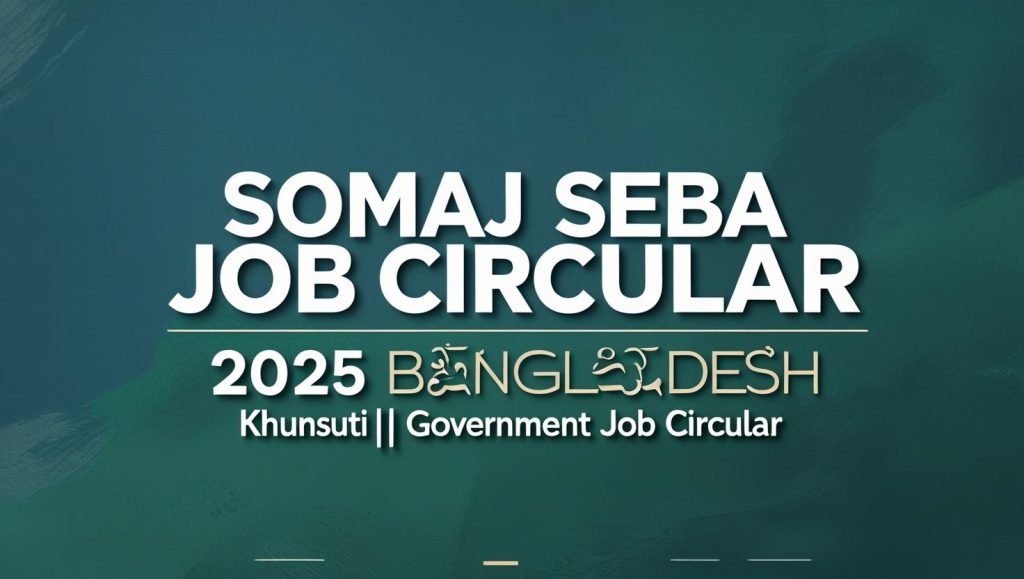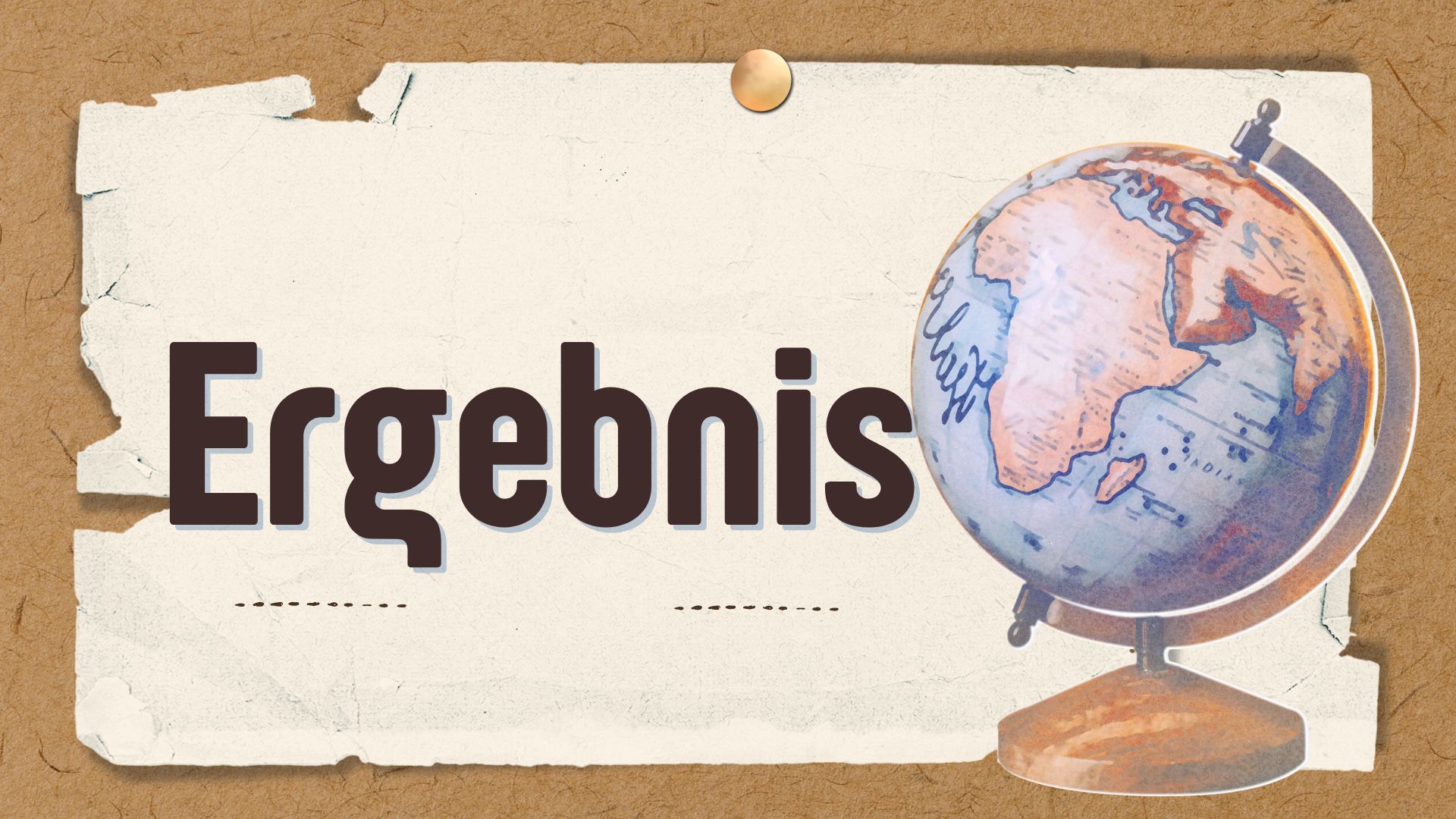In recent years, the demand for professionals in the social service sector in Bangladesh has grown significantly. The Somaj Seba (Social Service) job circular for 2025 presents a unique opportunity for aspirants looking to make a difference in their communities. As you explore these job opportunities, it’s essential to understand what is being offered, the requirements for applying, and how you can best position yourself for success in securing a role in this vital field.
Understanding the Somaj Seba Job Circular 2025
The Somaj Seba job circular for 2025 includes numerous positions that focus on social welfare and community development. These roles are designed to address various societal issues and uplift disadvantaged groups. The job circulars frequently released by the Ministry of Social Welfare in Bangladesh outline the specific job titles, the number of vacancies available, and the details pertinent to each position.
Key Opportunities
A few of the notable positions in the 2025 job circular may include:
- Social Work Officer
- Community Development Facilitator
- Child Protection Specialist
- Women Empowerment Coordinator
- Disability Rights Advocate
Requirements for Applicants
When dealing with the Somaj Seba job circular, it’s crucial to be aware of general requirements that are typically expected from candidates. Here are some standard requirements you should keep in mind:
- Minimum educational qualification: Bachelor’s degree in Social Work, Sociology, or a related field.
- Experience in community development or relevant fields is preferred.
- Strong communication and interpersonal skills.
- Proficiency in Bengali and English languages.
- Passion for social work and community service.
How to Apply
To apply for the jobs listed in the Somaj Seba job circular 2025, follow these straightforward steps:
- Visit the official Ministry of Social Welfare website to access the latest job circulars: mosw.gov.bd.
- Identify the position you are interested in and ensure you meet the criteria outlined.
- Prepare your resume, a cover letter detailing your suitability for the role, and any required documents.
- Submit your application online or through the postal service as indicated in the job circular.
Important Dates
Staying updated on critical deadlines is vital when applying for these positions. Here are some important dates you need to watch for:
| Event | Date |
|---|---|
| Job Circular Release | January 15, 2025 |
| Application Start Date | January 20, 2025 |
| Application Deadline | February 15, 2025 |
| Interview Dates | March 1 – March 15, 2025 |
Tips for a Successful Application
To enhance your chances of securing a job through the Somaj Seba job circular 2025, consider these helpful tips:
- Tailor your resume and cover letter for each application, highlighting relevant experience.
- Prepare for interviews by researching common questions and practicing your responses.
- Network with professionals in the sector for insights and potential referrals.
- Stay organized by keeping track of different application deadlines and requirements.
The social service sector plays a crucial role in Bangladesh, and the opportunities presented by the Somaj Seba job circular for 2025 are not to be missed. By understanding the requirements and preparing effectively, you can make a positive impact not only on your career but also on the lives of many in your community. Make sure to check official announcements closely to stay informed about the latest updates.
For more information on job opportunities in the social service sector and additional resources, visit the official sites: sangbadpratidin.in and prothomalo.com.
The Role of Somaj Seba in Enhancing Community Welfare in Bangladesh

In Bangladesh, the concept of Somaj Seba plays a significant role in shaping community welfare and enhancing the quality of life for many individuals. It revolves around social service initiatives aimed at uplifting vulnerable populations, promoting social justice, and ensuring that no one is left behind in the development journey. Through various programs and activities, Somaj Seba addresses critical issues such as poverty, health, education, and women’s empowerment, which collectively contribute to the overall progress of society.
How Somaj Seba Operates
Somaj Seba encompasses a myriad of services and support systems. These can include:
- Healthcare Access: Initiatives aimed at providing essential health services, especially in rural and underserved areas.
- Educational Programs: Offering coaching, scholarships, and resources to underprivileged children to ensure they receive adequate education.
- Vocational Training: Providing skills training to empower individuals, particularly women, to engage in income-generating activities.
- Advocacy and Awareness Campaigns: Raising awareness on social issues, rights, and community responsibilities.
Impact on Community Welfare
The impact of Somaj Seba is profound, touching lives at multiple levels. Not only does it provide immediate assistance, but it also creates long-term benefits that help communities thrive.
Some key impacts include:
- Reducing Poverty: By offering various support mechanisms, Somaj Seba helps lift families out of poverty, improving their standard of living.
- Improving Health Standards: Access to healthcare services results in better health outcomes, reducing disease incidences and enhancing life expectancy.
- Promoting Gender Equality: Vocational training and empowerment programs specifically designed for women help bridge gender gaps.
- Cultivating Community Spirit: Through collective initiatives, individuals develop a sense of belonging and responsibility towards their communities.
Collaborative Efforts
The effectiveness of Somaj Seba is amplified through collaborations with various stakeholders. Non-profits, government bodies, and local organizations often work together to maximize reach and resources. Such collaborations can lead to:
- Shared knowledge and resources, resulting in more efficient programming.
- Increased funding opportunities through partnerships.
- Enhanced credibility and visibility within communities.
Challenges Faced
Despite the positive contributions, Somaj Seba initiatives face several challenges that may hinder effectiveness, such as:
- Limited Resources: Funding can often be inadequate, restricting the scope and scale of programs.
- Bureaucratic Hurdles: Navigating governmental regulations can slow down the implementation of services.
- Awareness and Accessibility: Many community members may not be aware of available resources or may find it difficult to access them.
Future Directions
Looking ahead, it’s crucial for Somaj Seba initiatives to adapt and evolve. Some strategies that could enhance their impact include:
- Utilizing Technology: Leveraging mobile apps and online platforms to disseminate information and services.
- Community Involvement: Encouraging local participation in decision-making processes to ensure that programs meet the community’s actual needs.
- Sustained Funding: Engaging private sector partnerships to ensure stable and diverse funding sources.
Through the continuous engagement of communities, collaboration with various sectors, and adaptive strategies, Somaj Seba can significantly improve community welfare across Bangladesh. To learn more about social services and community welfare initiatives in Bangladesh, visit Department of Social Services or explore resources at Somaj Seba Bangladesh.
Essential Skills and Qualifications for Success in Somaj Seba Jobs
In the evolving landscape of employment in Bangladesh, particularly within the social services sector, pursuing a career in somaj seba, or social services, has become increasingly appealing. As opportunities grow, it’s essential to understand what skills and qualifications can pave the way for your success in these roles.
The field of somaj seba encompasses a broad range of activities aimed at improving the welfare of individuals and communities. Therefore, to excel in this area, you need a set of core competencies, qualifications, and personal attributes that align with the mission of social welfare.
Key Skills Required
- Communication Skills: Excellent verbal and written communication skills are crucial. You need to convey complex information simply and effectively to diverse audiences, including the individuals you serve and other stakeholders.
- Empathy and Compassion: A genuine desire to help others is vital. Empathy allows you to understand and share the feelings of others, which builds trust in relationships.
- Problem-Solving Skills: The ability to assess situations and develop practical solutions is essential. You will often encounter unexpected challenges that require quick thinking and creativity.
- Organizational Skills: Managing multiple tasks, deadlines, and responsibilities is a daily part of social service work. Strong organizational skills help you juggle these efficiently.
- Teamwork: Working collaboratively with colleagues, community members, and other agencies is fundamental. Being a team player extends the impact of your efforts.
- Cultural Competence: Understanding and respecting diverse cultures and backgrounds will allow you to serve a wider range of clients better. This knowledge fosters inclusivity in your work.
Essential Qualifications
Having the right qualifications can significantly enhance your job prospects in the somaj seba sector. While specific roles may have unique requirements, here are common qualifications sought after by employers:
- Educational Background: A degree in social work, psychology, sociology, or a related field is often required. Advanced degrees may provide an edge for higher-level roles.
- Relevant Experience: Internships, volunteer work, or previous employment in social services or community work can provide hands-on experience that is highly valued.
- Certification: Obtaining certifications from recognized institutions can enhance your credibility. Training programs in specific areas such as child protection, mental health, or elderly care are advantageous.
- Professional Development: Engaging in continuous professional education and attending workshops can keep you updated on best practices and evolving trends in social services.
Building Professional Connections
Networking within the social services community is paramount. Attend conferences, seminars, and local meetings to connect with other professionals. Establishing relationships can open doors to job opportunities and collaborations. Joining organizations focused on somaj seba, such as the Bangladesh Social Service Association, can further enhance your network.
Staying Informed
The social services field is constantly changing. Staying informed about new policies, laws, and best practices is crucial for anyone working in this sector. Subscribing to relevant publications and following authoritative websites helps you remain knowledgeable. Websites like Save the Children or the UNICEF Bangladesh offer invaluable insights and updates that can keep you informed about current issues and developments.
A Personal Touch
Beyond the technical skills and qualifications, one must bring a personal touch to the work. Understanding the nuances of individual experiences and building rapport with clients can make all the difference. Your attitude, sincerity, and commitment will reflect in your work and influence the impact you can create in the community.
Success in somaj seba jobs requires a balanced mix of the right skills, qualifications, professional connections, and a passion for helping others. As the demand for services grows, so does the opportunity for dedicated individuals to make a significant difference in the lives of many.
A Step-by-Step Guide to Applying for Somaj Seba Positions
Applying for a position in the Somaj Seba (Social Services) sector in Bangladesh can be a rewarding journey, especially for those passionate about making a difference in their communities. This step-by-step guide will walk you through the application process, ensuring you have all the necessary information at your fingertips.
Understanding the Somaj Seba Job Circular
Before you dive into the application process, it’s crucial to understand what the Somaj Seba job circular entails. The job circular typically includes:
- Job Title: The specific position you are applying for.
- Eligibility Criteria: Educational qualifications and experience required.
- Application Process: Instructions on how to apply.
- Deadline: Closing date for applications.
- Salary and Benefits: Information about pay and additional perks.
You can find the latest job circulars at [Somaj Seba’s official website](http://www.soscb.gov.bd) which often gets updated with new openings.
Step 1: Gather Required Documents
Preparation is key. Make sure you have all the necessary documents ready for submission. Commonly required documents include:
- Updated CV/resume
- Cover letter
- Copy of educational certificates
- Experience letters (if applicable)
- National ID or birth certificate
Having these documents organized ahead of time can save you stress as the application deadline approaches.
Step 2: Craft Your CV and Cover Letter
Your CV and cover letter are your first impressions to potential employers. Here are some tips:
- Tailor Your CV: Highlight relevant experience related to social services. Use action verbs to describe your roles.
- Personalize Your Cover Letter: Address it to the right person or hiring manager and mention why you’re interested in this specific role.
- Keep It Concise: Aim for one page for the CV and no more than a page for the cover letter.
Step 3: Follow the Application Instructions
Once you’re ready to apply, carefully read the application instructions outlined in the job circular. Great attention to detail can distinguish you from other candidates. Main points to consider:
- Application Method: Some positions might require you to apply online, while others may ask for written applications submitted via post.
- Forms: Ensure all forms or information requested are filled out completely and accurately.
- Original vs. Copies: Know if you need to submit original documents or just photocopies.
To find specific job postings and apply directly online, check out the [Bangladesh Government Job Portal](https://www.bangladesh.gov.bd).
Step 4: Keep Track of Your Application
After applying, it’s important to keep track of your application. Most organizations will communicate with you via email or phone. Here’s how to stay organized:
- Use a Checklist: Mark down the date of application and any communication received.
- Follow Up: If you haven’t heard back within a month, consider sending a polite email inquiring about your application status.
Step 5: Prepare for Interviews
If selected, you will likely be invited for an interview. Preparing well can boost your chances of success:
- Research the Organization: Familiarize yourself with their mission, current projects, and challenges.
- Mock Interviews: Practice answering common interview questions related to social work.
- Dress Appropriately: First impressions matter; wear professional attire suitable for the interview environment.
To find resources to prepare for interviews, you can visit [Youth Employment](https://www.youthemployment.org.uk), which offers helpful tips and mock interview guides.
Step 6: Understand the Offer
If you receive a job offer, take the time to review the terms and conditions. Look for:
- Compensation: Make sure the salary matches what was mentioned in the job circular.
- Job Responsibilities: Ensure you are clear on what will be expected from you in this position.
- Benefits: Review healthcare, leave, and retirement plans if applicable.
Applying for Somaj Seba positions can open doors to rewarding careers that allow you to contribute positively to society. By following these careful steps, you will enhance your chances of a successful application and start making a difference in the community.
Future Trends in Social Welfare Employment in Bangladesh: What to Expect from 2025 and Beyond
As Bangladesh continues to grow and develop, the landscape of social welfare employment is poised for significant changes leading into 2025 and beyond. The government’s commitment to eradicating poverty and enhancing social services will radically affect job opportunities in this field. Whether you are seeking to enter the social welfare sector or looking to advance your career, understanding these upcoming trends is essential.
Emerging Job Opportunities
The demand for social welfare professionals is expanding. With the government’s focus on sustainable development goals (SDGs), especially those related to poverty reduction and social inclusion, there are likely to be new job positions created in various areas. Consider the following roles that may see an increase:
- Community development workers
- Social workers specializing in mental health
- Policy advisors
- Data analysts in the social sector
- Healthcare coordinators focusing on preventative care
Digital Transformation in Social Welfare
The integration of technology into social services is on the rise. From mobile applications that aid mental health support to online platforms for resource distribution, technology is transforming how services are delivered. This digital transformation creates a need for skilled professionals who can manage and implement tech-based solutions in social welfare.
Focus on Mental Health and Well-being
With increasing awareness around mental health issues, jobs related to mental health services are expected to grow. Employers will look for individuals who are skilled in addressing psychological well-being, which includes:
- Counseling
- Psychosocial support
- Community outreach programs aimed at mental health
Professional qualifications in these areas will become increasingly valuable, with courses and certifications becoming available to prepare candidates for these roles.
Increased Collaboration Between Government and Non-Governmental Organizations (NGOs)
In Bangladesh, NGOs play a pivotal role in delivering social services. By 2025, it is expected that collaborations between the government and NGOs will intensify. This partnership will create more job opportunities in projects aimed at community improvement and social justice. Job seekers should consider gaining experience in NGO environments to enhance their employability.
Growing Emphasis on Training and Development
Employers in social welfare will increasingly seek candidates who have not only relevant qualifications but also practical experience. Therefore, training opportunities in the field will likely grow. Programs may include:
- Internships and apprenticeships
- Workshops on best practices in social work
- Online training courses on new technologies
Having practical experience can distinguish candidates in a competitive job market, which will be increasingly important as the field continues to evolve.
Government Policies and Initiatives
Anticipated government initiatives aimed at improving living conditions will benefit the job market. The “Somaj Seba” initiative, focusing on social service reforms, is expected to lead to an influx of job circulars. Keeping an eye on the Ministry of Social Welfare of Bangladesh will be beneficial for updates on available positions.
Job Circulars and Recruitment Platforms
Staying informed about job circulars is crucial. Websites that specialize in job postings for social welfare positions will be instrumental in your job search. Consider following platforms such as:
These platforms not only list job opportunities but also provide resources for preparing your application materials.
As Bangladesh progresses towards 2025, the social welfare sector will demand a workforce that is both adaptable and skilled. By keeping up with these trends and preparing for the evolving needs of the sector, aspiring social welfare professionals can position themselves for rewarding careers that make a difference in society.
Conclusion
As we look ahead to the Somaj Seba job circular of 2025, it’s clear that opportunities are abundant for those dedicated to enhancing community welfare in Bangladesh. The role of Somaj Seba is pivotal, not only in providing essential services but also in driving social change and improving the quality of life for many. By understanding the requirements and responsibilities outlined in the job circular, candidates can more effectively prepare themselves to contribute positively to society.
Equipping oneself with essential skills and qualifications is vital for success in these roles. Prospective applicants should focus on developing soft skills such as communication, empathy, and problem-solving, alongside achieving relevant educational qualifications. This combination will not only facilitate career advancement but will also increase one’s impact within the community.
For those eager to join this rewarding field, following a structured approach to the application process will prove beneficial. From tailoring your CV to preparing for interviews, every step is crucial in presenting yourself as a strong candidate.
Looking forward, the landscape of social welfare employment in Bangladesh is set to evolve. With an increasing emphasis on technology and innovative practices, future job seekers can anticipate a dynamic and fulfilling career path. By embracing the changes ahead and continuously developing their skills, you can position yourself to take advantage of the exciting prospects in social welfare.
Engaging in Somaj Seba is not just about finding a job; it’s about becoming a vital part of a community-oriented mission that leaves a lasting impact. Prepare, apply, and contribute to a brighter future for Bangladesh.



